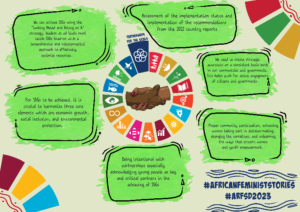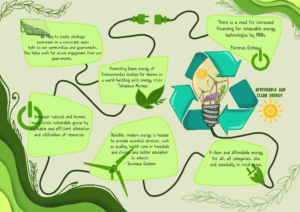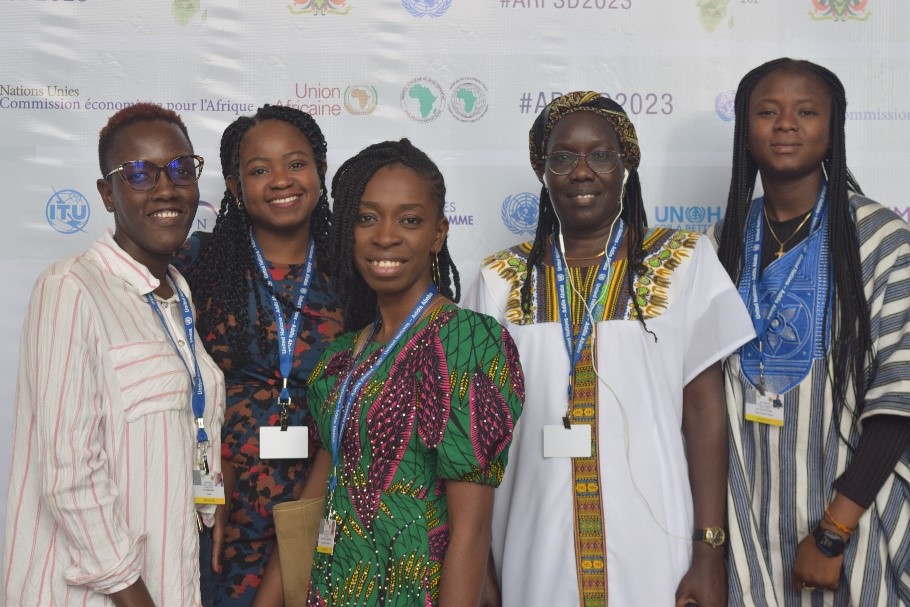
FEMNET Contributes to Outcomes of the 9th Africa Regional Forum on Sustainable Development
If I were to ask my grandmother in the village about the Sustainable Development Goals, would she know what these are? If I added the aspect of the Agenda 2063 of the African Union, would she be able to tell me what the agenda is or what it will achieve? She is unlikely to know. It is, however, more likely that she would vaguely know about SDGs from the news – given that each United Nations Secretary General including Antonio Guterres always talks about them.
The 9th session of the Africa Regional Forum on Sustainable Development (ARFSD) was held in Niamey, Niger from 27th February to 2nd March 2023, under the theme “Accelerating the inclusive and green recovery from multiple crises and the integrated and full implementation of the 2030 Agenda for Sustainable Development and Agenda 2063.” FEMNET participated in the regional forum as part of its continued engagement with the African Union. The participation is significant because it accelerates FEMNET’s priorities of increasing voice and solidarity among members and partners, as well as ensuring that key asks by women’s rights organizations are embedded in processes linked to Agenda 2063 of the AU and the 2030 Agenda for Sustainable Development. This process also served as a platform for building partnerships for future engagements and for fundraising.
The issue about awareness of SDGs and the Agenda 2063 among communities came up strongly during the Major Groups meeting which was held on Monday, 27th February 2023. The most important questions we should ask ourselves and our partners are: Are SDGs known in communities? How do we ensure local contexts are taken into consideration when SDGs are being implemented? Is SDG data popularized and adapted for all? Are SDGs and the Agenda 2063 embedded in the local laws and policies? Are women’s and youth voices heard in policies aimed at implementing the agenda? Is there real synergy of action?
To remedy this, in their position paper, the Women’s Major Group calls for effective and continuous awareness creation on SDGs within their implementation and reporting contexts.
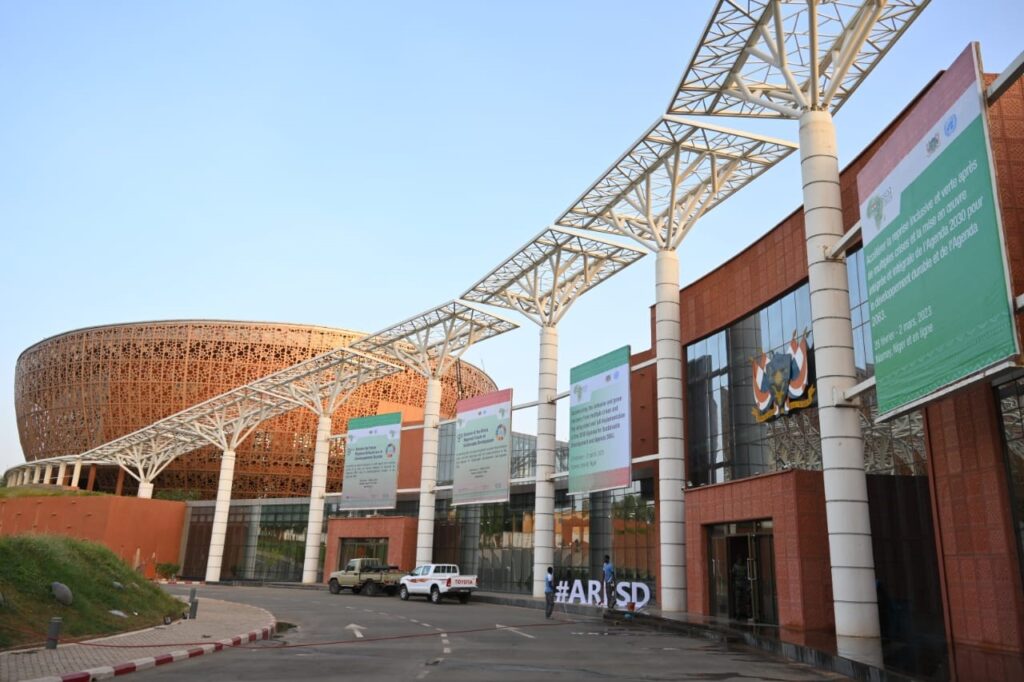
It is worth noting that during the major groups meeting and in other panel discussions , there was appetite for inclusion of women and girls, youth, indigenous peoples, persons living with disabilities and other vulnerable and marginalized groups in the process of monitoring and reporting i.e., through the Voluntary Local and National Reviews. Additionally, during the session, participants agreed on the need for local dialogues to strengthen collaboration and localisation of the SDGs and Agenda 2063, and to further report on progress made against each SDG.
This year, the SDGs under review are SDG 6 on Access to Clean Water and Sanitation, SDG 7 on access to Clean and Affordable Energy, SDG 9 on Industry, Innovation and Infrastructure, SDG 11 on Sustainable Cities and Communities and SDG 17 on Partnerships to achieve the Goals. In preparation for creating key messages on these goals, the ARFSD coordination team at FEMNET convened more than four meetings with members to hear about their priorities and key messages. The consultative meetings resulted in messaging on SDGs 6, 7 and 17. These women and girls provided messaging that guided the Women’s Major Group Position paper presented at the forum. The same messages were raised during the major groups meeting and have contributed to the outcome statement for this group. In addition, these messages were used during a submission by Ms. Anne Songole, FEMNET Climate Justice Coordinator, who led the ARFSD delegation in Niamey this year. Ms. Songole was on a panel at the Major Groups meeting that discussed how to accelerate a green recovery for the achievement of SDGs and Agenda 2063. A key submission was the need for new eco social contracts that centre social protection and prioritize and frame issues arising from the lived realities of women, girls, and local communities.
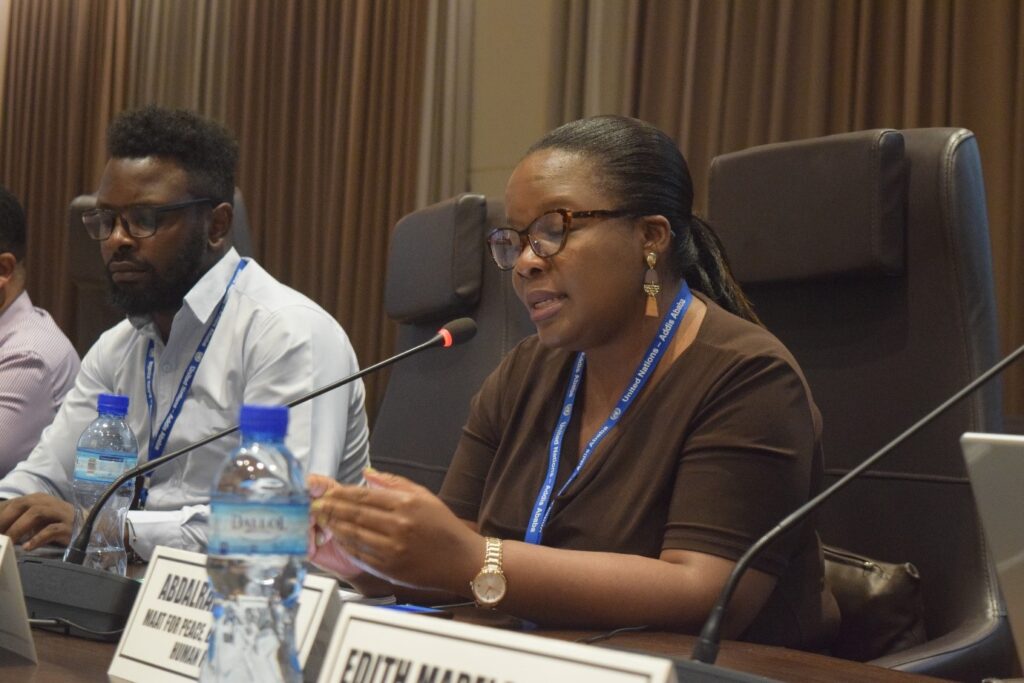
FEMNET collaborated with partners from various African regions. Their participation emphasized the importance of taking action at the national and regional levels. They made FEMNET’s participation important and impactful by forming future partnerships with other key stakeholders. Furthermore, they influenced the key messages and added their voices to those of women and young people who have been highlighted in social media awareness campaigns.
As the meeting ended on 2nd March 2023, there were panels on science and technology, that highlighted the need for locally led science and technology frameworks and knowledge. The panellists did not fail to emphasize that in the use of emerging technologies, particular attention should be given to the establishment of fundamental regulations for cybersecurity data protection and the adoption and digital identity. The second last panel before the closing had one speaker talk about the need for new social contracts that bring people together, adding that the process of delivering the SDGs and Agenda 2063 must be people-driven. Another capped his presentation by saying that there is need for political will, a statement that was stressed by many speakers, throughout the day’s discussions.
No one can save Africa except her countries. We must make a real commitment to build ourselves and achieve the SDGs.
We thank our members, partners and friends for their input and support to this important process.
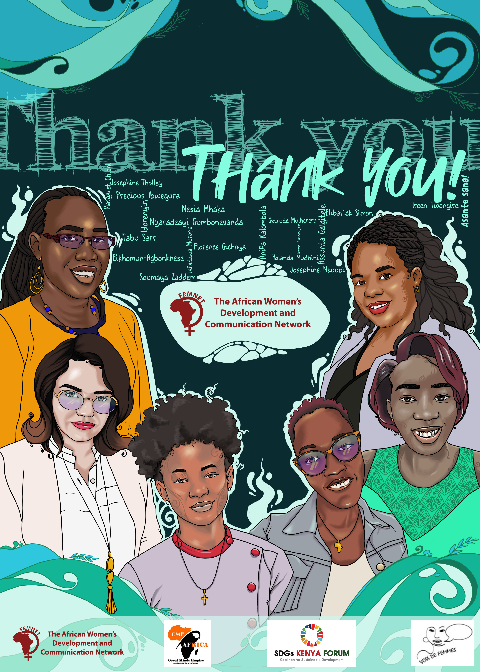
This blog was written by Anne Songole with inputs from Ms. Soumaya Zaddem (MENA Regional Director of Great Minds Empire) and Ms Flora Amandine KONE (Voix Des Femmes Public Relations Officer). Other inputs were received from Aileen Ajiwa (Climate Justice Assistant) and Julie Okiro (Information Management Assistant) of FEMNET.

